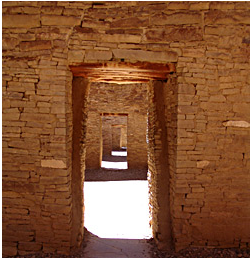Publication Date
4-27-1982
Abstract
The Tahltan Athapascan ceremony, the Feast for the Dead, contains symbolic messages that pertain to space as it is conceived of and used by these northern people. In this dissertation this issue, space among the Tahltan Indians, is explored. The work examines the historical antecedents, the ecological settings and spaces of the individual, the village, region and total area. Cosmology and the ceremonial cycle are discussed. The argument concludes with a detailed examination of the Tahltan Feast for the Dead, the chief ceremony of the yearly round.
Access to space for the Tahltan is based upon the principles of matrilineality, individual prestige, partnership and spirit relations. Now these various concepts inter-relate with physical space and space use is discussed in detail.
Tahltan cosmology is based upon the primacy of East and the concept of keye, or individual places. The lands of the dead lie to the west and the east and their natures differ somewhat, as discussed in the work.
The Tahltan Feast for the Dead is the paramount ceremony of these northern peoples. Contained within it are all of the significant distinctions upon which the Tahltan base the orientation of their world. Analysis of this ceremony is shown to pertain to all aspects of space.
The paper concludes with some general remarks concerning the analysis of space.
Project Sponsors
The Museum of Man, National Museums of Canada; and the Arctic Institute of North America
Document Type
Dissertation
Language
English
Degree Name
Anthropology
Level of Degree
Doctoral
Department Name
Anthropology
First Committee Member (Chair)
John Martin Campbell
Second Committee Member
Tony Hillerman
Third Committee Member
Alfonso Alex Ortiz
Fourth Committee Member
Robert Dale Campbell
Fifth Committee Member
Scott Rushford
Recommended Citation
Higgins, Howard C.. "The Tahltan Feast for the Dead: A Symbolic Examination of Space." (1982). https://digitalrepository.unm.edu/anth_etds/136
Fig 1. Map of Tahltan territory
higgins_tahltan_map_low_res.jpg (2275 kB)
Fig 1. Map of Tahltan territory - low resolution

